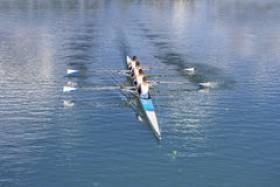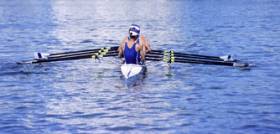Displaying items by tag: cancelled
Lough Rynn Regatta Cancelled due to Weather Forecast
#Rowing: The organisers of Lough Rynn Regatta, set for Saturday, have cancelled the event. As Thursday went on the weather forecasts suggested that the mean speed of the win would be over 20 kilometres per hour with gusts which could make rowing on some parts of the course unsafe.
John Walsh, the regatta secretary, sent out a statement which said:
It is with huge regret and a heavy heart that the committee of Lough Rynn Regatta communicates this press release to inform the clubs that the Regatta for 2018 scheduled for 5th May 2018 has been cancelled due to the forecasted wind and wind gusts that are promised tomorrow during the middle of the day.
In the interest of athlete and volunteer safety we have made this decision in as timely a manner as possible. We gave the forecast every chance to improve once it deterioated yesterday afternoon and have even debated which forecast is the best to use. To be fair to all of the 41 clubs and 443 crews that were due to compete on the day and that were to due to travel from all over the country this decision is now being communicated in line with the initial announcement last night.
We would sincerely like to thank each and every one of the clubs, athletes and coaches who entered in such large numbers and to our army of volunteers who had set aside their day for the hosting of a successful regatta. Included in our volunteer rota was Mr. Eamonn Colclough, President of Rowing Ireland and Ms Michelle Carpenter the newly appointed CEO of Rowing Ireland. All our volunteers who have worked tirelessly over the past number of weeks are all equally devasted but safety comes first in this instance.
We will review the rowing calendar and hopefully will be back later in the year with an alternative event / date.
Thank you all for your continued support.
Yours in rowing
John Walsh
Regatta Secretary
Skibbereen Rowing Regatta Cancelled
#Rowing: Skibbereen Regatta, set for this Saturday and Sunday, April 14th and 15th, at the National Rowing Centre, has been cancelled. The weather forecast, which orginally put the Sunday of the event in doubt, worsened. Saturday evening was set to feature a south east wind which would have made parts of the course unrowable. The organisers decided to abandon both days. The event featured a record entry for a domestic regatta.
Ireland Trial Cancelled
#Rowing: The Irish Trial scheduled for Saturday, December 23rd, has been cancelled. The organisers found they could not access adequate medical cover at the National Rowing Centre on the day and abandoned in the interests of health and saftey.
Weather Takes Out Dam Buster Head
#Rowing: The Dam Buster Head of the River, scheduled for this Saturday, December 16th, has been cancelled. The weather forecast for Blessington was not good, and the organisers chose to abandon the event because of safety concerns. It was the inaurgural Dam Buster Head, run by Carlow Rowing Club.
Neptune Head Falls to Bad Weather Forecast
#Rowing: The Neptune Head of the River was cancelled this morning. The event, which was due to be held at Blessington tomorrow, Saturday, fell due to a deteriorating weather forecast. The organisers apologised for the late notice, especially to those who were involved in the preparation work and thanked all those who volunteered their time and services.
Irish Open Off Because of Poor Weather Forecast
#Rowing: The Irish Open, scheduled for this weekend has been cancelled. The forecast was not good and the organisers decided not to continue with the event. The official announcement said that “in the interest of safety and fairness” Rowing Ireland had cancelled the event.
Bad Forecast Claims St Michael's Head of the River
#Rowing: St Michael’s Head of the River, scheduled for Saturday (February 25th) has been cancelled. The forecast for O’Brien’s Bridge was not good.
The organisers hope to reschedule the head for March 18th, the date vacated by Galway Head of the River.
The Domestic Events Committee of Rowing Ireland will make the decision.
Neptune Head of the River is Off
#Rowing: Neptune Head of the River, scheduled for Saturday, November 5th on Blessington Lakes has been cancelled. The organisers say that the forecast of high winds at the venue meant they could not continue with the event. A big part of the entry consisted of junior crews – there were 20 entries in the men’s junior 18 single sculls.
Metro Regatta Cancelled Because of Low Water Levels
#Rowing: Dublin Metropolitan Regatta (Metro) has been cancelled. The event was scheduled for Saturday, May 28th, at Blessington Lakes, but despite repeated efforts, volunteers could not lay a satisfactory course because of low water levels. The ESB has been working in the area, but water levels were expected to rise naturally in recent weeks and have not.
St Michael's and Dublin Heads Cancelled
#Rowing: The St Michael’s Head of the River, set for this Saturday, March 12th, has been cancelled because of increased water levels at O’Brien’s Bridge. This event was rescheduled, after an earlier cancellation.
The Dublin Head of the River, scheduled for March 26th, has also been cancelled. The organisers say that conditions on the weir at Islandbridge would not be safe. Offaly head, on this date, will accept entries for all standard grades except eights.


































































